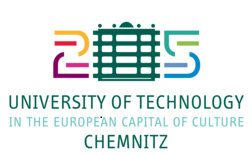The Views of Students From a Migrant Background on Academic Competition: A Q Methodology Research
DOI:
https://doi.org/10.71514/jssal/2025.200Keywords:
Q methodology, immigrant students, academic competition, student perceptions, psychosocial adjustmentAbstract
Increased student diversity with globalization complicates the impact of academic competition on students from a migrant background. This study goes beyond the simple dichotomy of “good” or “bad” competition and examines multi-layered perspectives of students from a migrant background on this phenomenon in depth. The research, conducted with the participation of 20 immigrant middle school students in Turkey, utilized Q methodology. As a result of factor analysis, four different and distinct opinion profiles reflecting students' perceptions of academic competition emerged: (1) Those Who View Competition as a Source of Motivation: A group that perceives competition as a driving force for personal development and emphasizes language proficiency. (2) Those Who Emphasize the Inequalities Created by Competition: Those who believe that competition creates systemic barriers and injustices for migrants. (3) Critics of Elite Competition: Those who argue that competition only benefits certain students and that individual effort is the main determinant. (4) Those Who Prioritize Support and Cooperation: Those who state that cooperation and social support are more valuable than competition for success. The findings show that students from a migrant background are not a homogeneous group and that “one-size-fits-all” approaches are inadequate. This study emphasizes the critical importance of individualized and inclusive education policies that balance competitive elements with collaborative and supportive structures to support both academic achievement and psychosocial well-being.
Downloads
References
Andrade, M. S. (2006). International students in English-speaking universities: Adjustment factors. Journal of Research in International Education, 5(2), 131-154. https://doi.org/10.1177/1475240906065589
Banasick, S. (2023). Ken-Q Analysis (Version 2.0.1)[Computer software]. https://doi.org/10.5281/zenodo.8310377
Bang, H., & Montgomery, D. (2013). Understanding international graduate students' acculturation using Q methodology. Journal of College Student Development. https://doi.org/10.1353/csd.2013.0066
Berry, J. W. (1997). Immigration, acculturation, and adaptation. Applied Psychology: An International Review, 46(1), 5-34. https://doi.org/10.1111/j.1464-0597.1997.tb01087.x
Brown, S. R. (1996). Q methodology and qualitative research. Qualitative Health Research, 6(4), 561-567. https://doi.org/10.1177/104973239600600408
Curiale, J. M. (2019). Shared viewpoints of ENL Teachers about the challenges they face: A Q- methodological study [Doctoral dissertation, St. John's University]. ProQuest Dissertations & Theses Global.
DeCapua, A., & Marshall, H. W. (2010). Reaching ELLs at risk: Instruction for students with limited or interrupted formal education. Preventing School Failure Alternative Education for Children and Youth, 55(1), 35–41. https://doi.org/10.1080/10459880903291680
Elliot, A. J., & McGregor, H. A. (2001). A 2 × 2 achievement goal framework. Journal of Personality and Social Psychology, 80(3), 501-519. https://doi.org/10.1037/0022-3514.80.3.501
Fang, L., Sun, R. C. F., & Yuen, M. (2016). Acculturation, economic stress, social relationships and school satisfaction among migrant children in urban China. Journal of Happiness Studies, 17(2), 507-531. https://doi.org/10.1007/s10902-014-9604-6
Festinger, L. (1954). A theory of social comparison processes. Human Relations, 7(2), 117-140. https://doi.org/10.1177/001872675400700202
Gao, J. (2020). Sources of Mathematics Self-Efficacy in Chinese Students: a Mixed-Method Study with Q-Sorting Procedure. International Journal of Science and Mathematics Education, 18(4), 713–732. https://doi.org/10.1007/s10763-019-09984-1
Griffin-Pierson, S. (1990). The competitiveness questionnaire: A measure of two... Measurement & Evaluation in Counselling & Development, 23(3). https://eric.ed.gov/?id=EJ426830
Günay, A., & Çelik, R. (2020). Individual Competitiveness Scale: Turkish Adaptation, Validity and Reliability Study. Süleyman Demirel University Visionary Journal, 11(Ek), 42-49. https://doi.org/10.21076/vizyoner.772132
Koehler, C., & Schneider, J. (2019). Young refugees in education: The particular challenges of school systems in Europe. Comparative Migration Studies, 7(1), 28. https://doi.org/10.1186/s40878-019-0129-3
Lundberg, A. (2018). Teachers’ beliefs about multilingualism: findings from Q method research. Current Issues in Language Planning, 20(3), 266–283. https://doi.org/10.1080/14664208.2018.1495373
Murayama, K., & Elliot, A. J. (2012). The competition–performance relation: A meta-analytic review and test of the opposing processes model of competition and performance. Psychological Bulletin, 138(6), 1035–1070. https://doi.org/10.1037/a0028324
OECD (2019), The Road to Integration: Education and Migration, OECD Reviews of Migrant Education, OECD Publishing, Paris, https://doi.org/10.1787/d8ceec5d-en
Özşahin, M. T., & Atmaca, T. (2024). Factors Revealing Professional Competition in Teachers and Reflections of Professional Competition. MANAS Journal of Social Research, 13(3), 888-910. https://doi.org/10.33206/mjss.1329431
Petrovic, J. E., & Olmstead, S. (2001). Language, power, and pedagogy: Bilingual children in the crossfire, by J. Cummins. Bilingual Research Journal, 25(3), 405-412. https://doi.org/10.1080/15235882.2001.10162800
Portes, A., & Rumbaut, R. G. (2014). Immigrant America: A Portrait (4th ed.). University of California Press. https://doi.org/10.2307/jj.10984434
Posselt, J. R., & Lipson, S. K. (2016). Competition, anxiety, and depression in the college classroom: Variations by student identity and field of study. Journal of College Student Development, 57(8), 973-989. https://doi.org/10.1353/csd.2016.0094
Robinson, T. (2024) A Q-Methodological Study: Which Factors are Considered to be the Most Impactful for the Academic Success of Black-African Caribbean Males? DAppEdPsy thesis, University of Nottingham.
Rudolf, R., & Lee, J. (2023). School climate, academic performance, and adolescent well-being in Korea: The roles of competition and cooperation. Child Indicators Research, 16(2), 507-531. https://doi.org/10.1007/s12187-022-10005-x
Ryan, R. M., & Deci, E. L. (2000). Self-determination theory and the facilitation of intrinsic motivation, social development, and well-being. American Psychologist, 55(1), 68-78. https://doi.org/10.1037/0003-066X.55.1.68
Smither, R. D., & Houston, J. M. (1992). The nature of competitiveness: The development and validation of the competitiveness index. Educational and Psychological Measurement, 52(2), 407- 418. https://doi.org/10.1177/0013164492052002016
Stanton-Salazar, R. D. (2011). A social capital framework for the study of institutional agents and their role in the empowerment of low-status students and youth. Youth & Society, 43(3), 1066- 1109. https://doi.org/10.1177/0044118X10382877
Suárez-Orozco, C., Gaytán, F. X., Bang, H. J., Pakes, J., O'Connor, E., & Rhodes, J. (2010). Academic trajectories of newcomer immigrant youth. Developmental Psychology, 46(3), 602-618. https://doi.org/10.1037/a0018201
Suárez-Orozco, C., Suárez-Orozco, M. M., & Todorova, I. (2008). Learning a new land: Immigrant students in American society. Harvard University Press. https://doi.org/10.2307/j.ctv1m0kjvp
Swetnam, K. G. (2010). Dropout and academic achievement perceptions of middle and high school students of Mexican descent: A Q-methodology study. Operant Subjectivity, 33(3/4). https://doi.org/10.22488/okstate.10.100578
Van Nuland, S. E., Roach, V. A., Wilson, T. D., & Belliveau, D. J. (2015). Head to head: The role of academic competition in undergraduate anatomical education. Anatomical sciences education, 8(5), 404-412. https://doi.org/10.1002/ase.1498
Watts, S., & Stenner, P. (2012). Doing Q methodological research: Theory, method and interpretation. Sage Publications. https://doi.org/10.4135/9781446251911
Wentzel, K. R., Barry, C. M., & Caldwell, K. A. (2004). Friendships in Middle School: Influences on Motivation and School Adjustment. Journal of Educational Psychology, 96(2), 195-203. https://doi.org/10.1037/0022-0663.96.2.195
Yıldırım, A., & Şimşek, H. (2018). Sosyal Bilimlerde Nitel Araştırma Yöntemleri (11. Baskı). Ankara: Seçkin Yayıncılık.
Yıldırım, İ. (2018). Anne Baba Desteği ve Başarı. Ankara, Anı Yayıncılık.
Yuan, W. (2010). Investigating international student perceptions of adjustment through Q methodology. Intercultural Communication Studies, 19(2), 235-251. https://www-s3- live.kent.edu/s3fs-root/s3fs-public/file/17WenliYuan.pdf
Yuan, W. (2011). Academic and cultural experiences of Chinese students at an American university: A qualitative study. Intercultural Communication Studies, 20(1), 141-157. https://www-s3-live.kent.edu/s3fs-root/s3fs-public/file/11WenliYuan.pdf
Downloads
Published
How to Cite
Issue
Section
License
Copyright (c) 2026 Mehmet Irmak

This work is licensed under a Creative Commons Attribution 4.0 International License.
The work is made available under the terms of the Public Offer and the Creative Commons Attribution 4.0 International License (CC BY 4.0). This license allows anyone to reproduce, distribute, and adapt the material in any medium or format, including for commercial purposes, provided that proper credit is given to the creator(s) and the original source.











